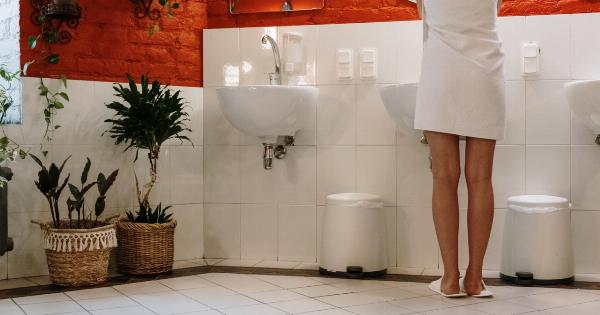When we hear the term “bad habits,” negative connotations usually come to mind. However, not all bad habits are inherently detrimental to our well-being.
In fact, some bad habits can surprisingly have positive effects on various aspects of our lives. By understanding the potential benefits that can arise from these seemingly negative behaviors, we can navigate our habits more effectively and even harness their advantages. Let’s explore some of these habits that can actually be good for you:.
1. Procrastination
Procrastination is a widely regarded as a detrimental habit that hinders productivity and success. However, it can also serve as a valuable tool for idea incubation and creativity.
When we procrastinate, our minds have the opportunity to wander and make unexpected connections. This mental exploration can lead to unique insights and innovative ideas.
2. Overthinking
While overthinking is often associated with anxiety and stress, it can also be beneficial in certain scenarios. Overthinkers tend to analyze situations from multiple perspectives, which can result in effective problem-solving and decision-making.
This habit allows for thorough consideration of all possibilities, leading to more informed choices.
3. Daydreaming
Daydreaming may be seen as unproductive and a distraction. However, it can provide a mental break and improve overall well-being. Research has shown that daydreaming can stimulate creativity, enhance self-reflection, and boost mental relaxation.
The downtime that daydreaming provides allows us to recharge and come back to tasks with renewed focus.
4. Nail-Biting
Nail-biting is often considered a nervous habit that should be stopped. Surprisingly, there are some benefits to this seemingly unhygienic behavior. Studies suggest that nail-biting can act as a stress reliever and help individuals cope with anxiety.
It may also increase immunity by exposing the body to certain bacteria, potentially strengthening the immune system in the long run.
5. Messiness
A messy environment is typically associated with disorganization and chaos. However, research indicates that a certain level of messiness can actually boost creativity.
A messy desk or workspace can promote cognitive flexibility and encourage unconventional thinking. Creative minds may find inspiration and generate unique ideas within the clutter.
6. Rebellion
Rebellion is often viewed as a negative behavior, associated with defiance and resistance. However, this rebellious attitude can lead to positive societal changes.
Throughout history, rebels have challenged the status quo and fought for justice and equality. Without rebellion, important social movements and advancements would have never occurred.
7. Worrying
While excessive worrying can be detrimental to mental health, a moderate level of worry can be advantageous. Worrying helps us anticipate potential problems, prompting us to take precautions and plan ahead.
By acknowledging our worries, we can prepare ourselves for challenges and minimize risks.
8. Indulging in Guilty Pleasures
Indulging in guilty pleasures, such as enjoying a binge-worthy TV show or treating ourselves to a decadent dessert, can have positive effects on our well-being.
These small indulgences provide moments of happiness and relaxation, allowing us to recharge and destress. As long as they are enjoyed in moderation, guilty pleasures can be a healthy way to unwind.
9. Perfectionism
While perfectionism is often considered a bad habit due to the associated stress and self-imposed pressure, it can also be a driving force behind achievement. Perfectionists strive for excellence and are motivated to produce high-quality work.
Their attention to detail and desire for flawlessness can lead to great accomplishments.
10. Social Media Distractions
Social media distractions are often criticized for their time-consuming nature and potential negative impact on mental health. However, they can also provide a much-needed break and a means of connection.
Social media platforms allow us to catch up with friends, discover new interests, and stay informed about current events. When used intentionally and in moderation, social media can be a valuable source of entertainment and connection.
Conclusion
While they may seem like detrimental habits, these examples demonstrate that not all bad habits have exclusively negative effects. Understanding the potential benefits of these behaviors allows us to utilize them to our advantage.
However, it is crucial to remember that moderation and self-awareness are essential. By acknowledging the positive aspects of certain bad habits, we can achieve a healthier balance and lead more productive and fulfilling lives.


















